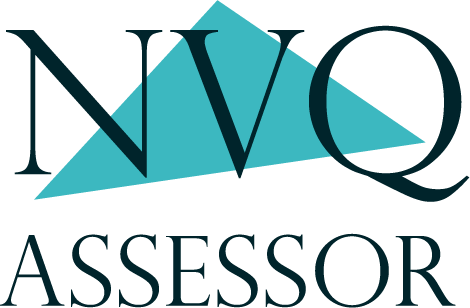 By Katherine Little
By Katherine Little
Published 3rd Feb 2023 | Blog
An assessor is a professional who is responsible for evaluating the skills, knowledge, and abilities of individuals in a particular field. The role of an assessor is vital in ensuring that the right training and development opportunities are provided to individuals and that their skills are recognized and certified. In this blog article, we will explore the roles and responsibilities of an assessor in detail.
Roles of an Assessor
- Evaluate and assess individuals’ skills, knowledge, and abilities in a specific field.
- Identify areas of improvement for individuals and provide them with feedback.
- Develop assessment tools and techniques to evaluate individuals’ skills effectively.
- Determine the most appropriate method of assessment for individuals based on their needs and abilities.
- Ensure that assessments are fair, reliable, and consistent.
- Keep up-to-date with developments in the field and make recommendations for improvements.
Responsibilities of an Assessor
- Conduct assessments: The primary responsibility of an assessor is to conduct assessments. This involves evaluating individuals’ skills, knowledge, and abilities in a specific field and determining their level of proficiency.
- Provide feedback: Assessors are responsible for providing individuals with feedback on their performance. This feedback should be constructive, objective, and based on the results of the assessment.
- Develop assessment tools: Assessors must develop assessment tools that are reliable, valid, and appropriate for the field being assessed. This may involve developing assessment plans, questionnaires, or other assessment instruments.
- Ensure fairness and consistency: Assessors must ensure that assessments are fair, reliable, and consistent. This involves ensuring that all individuals are assessed in the same way and that assessments are conducted in an environment that is free from bias and discrimination.
- Maintain records: Assessors are responsible for maintaining records of all assessments conducted. These records should include the results of the assessment, feedback provided to individuals, and any recommendations for improvement.
- Keep up-to-date with developments: Assessors must keep up-to-date with developments in the field and make recommendations for improvements. This involves staying informed about new technologies, best practices, and emerging trends in the field.
In conclusion, the role of an assessor is critical in ensuring that individuals receive the right training and development opportunities to meet their needs. Assessors are responsible for evaluating individuals’ skills, knowledge, and abilities, providing feedback, developing assessment tools, ensuring fairness and consistency, maintaining records, and keeping up-to-date with developments in the field. To be an effective assessor, one must have a strong understanding of the field being assessed, be well-organised, and have excellent communication and interpersonal skills.
If you have any questions about becoming an assessor or the roles and responsibilities then please send us an email at hello@nvqassessor.org.uk and we will be happy to answer any and all questions.
NEWSLETTER
Fortnightly Assessor Jobs, Blog Posts and Exclusive Content straight to your inbox.
Welcome!
An assessor is a professional who is responsible for evaluating the skills, knowledge, and abilities of individuals in a particular field. The role of an assessor is vital in ensuring that the right training and development opportunities are provided to individuals and that their skills are recognized and certified. In this blog article, we will explore the roles and responsibilities of an assessor in detail.
Roles of an Assessor
- Evaluate and assess individuals’ skills, knowledge, and abilities in a specific field.
- Identify areas of improvement for individuals and provide them with feedback.
- Develop assessment tools and techniques to evaluate individuals’ skills effectively.
- Determine the most appropriate method of assessment for individuals based on their needs and abilities.
- Ensure that assessments are fair, reliable, and consistent.
- Keep up-to-date with developments in the field and make recommendations for improvements.
Responsibilities of an Assessor
-
Conduct assessments: The primary responsibility of an assessor is to conduct assessments. This involves evaluating individuals’ skills, knowledge, and abilities in a specific field and determining their level of proficiency.
-
Provide feedback: Assessors are responsible for providing individuals with feedback on their performance. This feedback should be constructive, objective, and based on the results of the assessment.
-
Develop assessment tools: Assessors must develop assessment tools that are reliable, valid, and appropriate for the field being assessed. This may involve developing assessment plans, questionnaires, or other assessment instruments.
-
Ensure fairness and consistency: Assessors must ensure that assessments are fair, reliable, and consistent. This involves ensuring that all individuals are assessed in the same way and that assessments are conducted in an environment that is free from bias and discrimination.
-
Maintain records: Assessors are responsible for maintaining records of all assessments conducted. These records should include the results of the assessment, feedback provided to individuals, and any recommendations for improvement.
-
Keep up-to-date with developments: Assessors must keep up-to-date with developments in the field and make recommendations for improvements. This involves staying informed about new technologies, best practices, and emerging trends in the field.
In conclusion, the role of an assessor is critical in ensuring that individuals receive the right training and development opportunities to meet their needs. Assessors are responsible for evaluating individuals’ skills, knowledge, and abilities, providing feedback, developing assessment tools, ensuring fairness and consistency, maintaining records, and keeping up-to-date with developments in the field. To be an effective assessor, one must have a strong understanding of the field being assessed, be well-organised, and have excellent communication and interpersonal skills.
If you have any questions about either course then please send us an email at hello@nvqassessor.org.uk and we will be happy to answer any and all questions.
NEWSLETTER
Fortnightly Assessor Jobs, Blog Posts and Exclusive Content straight to your inbox.
Welcome!

Building Services End-Point Assessor
The employer is a Training Sector organisation in Leamington Spa who specialise in developing qualifications for the Construction and Civil Engineering sectors. They develop a range of industry qualifications including Apprenticeships, which are developed and assessed by sector specialists with real industry knowledge. They currently have a fantastic opportunity an experienced Building Services Engineer or […]

Childcare Assessor (Trainee or Qualified)
KM have an exciting opportunity for a Childcare Assessor to deliver full Apprenticeships in Childcare! This opportunity is open to both Trainee and Qualified candidates. Trainee applicants – this is a great opportunity for a Room Leader (or above) to transition to a new and rewarding career within the training industry! Qualified Assessors – applications […]

Skills Tutor
Educated Appointments are delighted to be supporting a fast-growing premier provider of accountancy training and apprenticeships. Due to increased demand for apprenticeship training programmes they are looking out for new Tutor to join our team. This role sits within the Impact Skills Team and ultimately reports to the Programme Delivery Director. This role includes travel […]

Business and Education End-Point Assessor
The role of an Apprenticeship End-Point Assessor is to provide independent, fair, reliable, and consistent assessment services to Training Qualifications UK customers working with Apprenticeship Standards. End-Point Assessors are required to use assessment experience with robust and relevant industry knowledge to form judgements and grading decisions upon the completion of a variety of assessment activities, […]
Different Ways to Record Phone Conversations on iPhone
Recording phone calls on an iPhone can be useful in many situations, from keeping track of business discussions to saving important personal conversations for later reference. However, because of Apple’s strict privacy policies, the process isn’t always straightforward. There are several approaches users can try depending on their needs. The simplest method involves using built-in features like the Voice Memos app. By placing the call on speakerphone, you can record the conversation externally, though the quality may vary and background noise can interfere. Another option is to use third-party apps designed for call recording. These applications often rely on conference-call technology, routing your call through a recording line, which then saves the audio to a cloud account. While these methods work, they can be inconvenient, and not all guarantee consistent results. That’s why many users prefer more advanced and reliable tools. As discussed in how to record call on iphone, the Moniterro platform offers a more complete and automated solution. Unlike basic recording apps, Moniterro provides not only access to conversation recordings but also detailed call logs, contact information, and timestamps. It enables users to track both incoming and outgoing calls effortlessly, and everything is displayed in an organized dashboard that can be accessed remotely from any browser. This feature makes Moniterro especially valuable for parental monitoring, employee supervision, or simply ensuring accountability in communication. Installation is quick, and the app operates discreetly in the background without interfering with normal phone use. Beyond call recording, Moniterro can also monitor text messages, social media activity, and browsing history — creating a comprehensive overview of the device’s usage. Used responsibly, this technology offers peace of mind, helping users stay informed while maintaining transparency and safety in everyday digital interactions.


